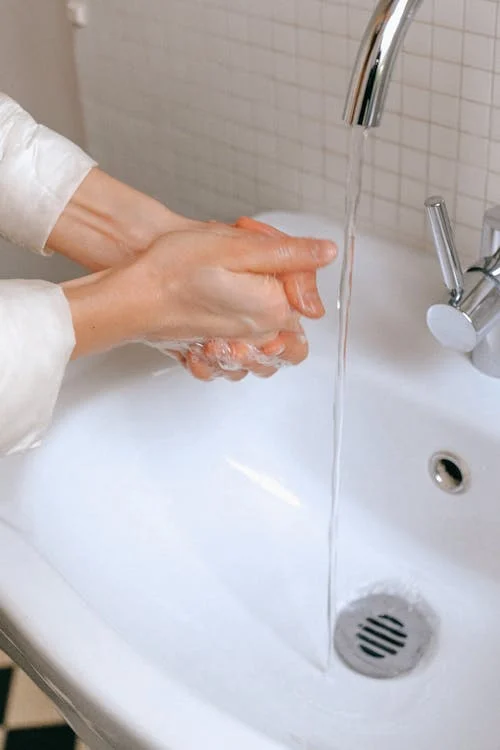Teaching your children as they grow older can be a challenging feat. They always seem to grab whatever stuff they see, and although this may have a role in their growth and development, it’s not safe for them to touch everything to see. For example, things such as door handles, outside food, mud, and even toys can be unsanitary and could cause problems through transmittable diseases. Thus, teaching your kids to develop hygienic habits from a young age is essential in ensuring that they stay healthy and safe.
Read on to know more about the essential healthy habits to teach your children.
Food Hygiene
Unhealthy food hygiene can result in food poisoning and lead to stomach pains, vomiting, or diarrhea. As a parent, you need to make sure that you practice proper hygiene when you prepare, serve, and feed your children.
When you teach your kid regarding food hygiene, begin with the fundamentals and educate them about the disease-causing germs and bacteria. Furthermore, let them understand how these harmful microorganisms can affect their bodies and spread from their fingers to their food. Also, emphasize the habits that may help prevent diseases.
Oral Hygiene
It’s also imperative that you teach your child how to take care of their oral health. With no proper care, they can develop bad breath, cavities, and other types of oral diseases. If your kids have crooked teeth, you can get invisalign in upper East Side.
Hand Hygiene
Frequently washing hands can decrease the chances of contracting diseases like diarrhea. The simplest way to practice proper hand hygiene is by teaching your children two wash their hands thoroughly. Then, you can give them a step-by-step demonstration on how to do it to ensure they get everything right.
Good hand hygiene includes keeping your children’s hands clean at all times. Let them create a habit of washing their hands for each time they:
- Are about to eat
- Are finished eating their food
- Pet an animal
- Play outside
- Use the bathroom
- Cough or sneeze
- Meet a sick friend
- Come home from the outside
- Clean the house
Sleep Hygiene
Sleep is crucial for children and adults as our bodies use this opportunity to record memories and regenerate cells. Proper sleep hygiene includes all the things that aid in getting your child a good night’s sleep. In addition, it enables you to create a healthy sleeping pattern for your child, laying in enough sleep during the night so they can stay active in the mornings. You can also educate your child on sleep’s importance to get them more interested in knowing its benefits.
Vocal Hygiene
Vocal hygiene involves a set of practices you can use to help your child develop a modulated voice. Since many children tend to build a habit of shouting a lot, if you can’t give them attention and ignore them, your child’s vocal cords can undergo lots of stress and become damaged.
Toilet Hygiene
One of the areas in the house containing many germs is the toilet or the bathroom. As long as you can keep this area clean and teach your kid proper toilet hygiene, you can stay away from the diseases more likely to spread due to an unclean bathroom.
Bathing Hygiene
The best method of keeping your child clean and healthy all the time is by regularly bathing them. Proper bath hygiene includes teaching them to bathe twice a day— before going to school and after coming back and ensuring they apply soap to their skin every shower time. It also covers encouraging them to scrub their groin, legs, feet, and armpits with gentleness and keeping an eye to make sure they take extra care when cleansing their face.
Hair Hygiene
Having poor hair hygiene can cause your child problems such as lice, scalp infections, and dandruff. Your kid can obtain these when playing with their friends or other children in their surroundings. So, to avoid this, you should teach your child how to take good care of their scalp.
Coughing and Sneezing Hygiene
You can’t always shield your child away from some illnesses. But, conversely, some of these illnesses can even improve your child’s immunity, which makes it an upside. Also, your child can sometimes be infected with a common cold or a cough.
Stop your child from spreading contagious diseases by teaching them how to cover their nose and mouth every time they cough or sneeze. In addition, rather than using their hands, you can encourage them to utilize a handkerchief. If they don’t have access to one, teach them to sneeze on their elbow or sleeve instead. Doing this can help avoid the spreading of microorganisms from their hands.
Clothes and Shoes Hygiene
Children need a clean set of clothes every day, even if their used ones don’t smell. Also, it’s essential to make them wear clean underwear each day.
You or they (if your children are old enough) can hang up their uniforms to dry when they get home every day.

